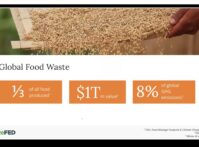A report from the Center for Strategic and International Studies argues that the
global food crisis poses a moral and humanitarian threat; a developmental threat; and a strategic threat. The authors recommend that the United States: modernize emergency assistance; make rural development and agriculture top U.S. foreign policy priorities; alter the U.S. approach to biofuels; ensure U.S. trade policy promotes developing-country agriculture; and strengthen relevant U.S. organizational capacities.
In an article in Scientific American, Jeffrey Sachs argues that the global food shortages Thomas Malthus predicted in 1798 may still come to pass if we do not slow population growth and begin using natural resources more sustainably.
A report by the Government Accountability Office finds that food insecurity in sub-Saharan African persists, despite U.S. and global efforts to halve it by 2015, due to “low agricultural productivity, limited rural development, government policy disincentives, and the impact of poor health on the agricultural workforce. Additional factors, including rising global commodity prices and climate change, will likely further exacerbate food insecurity in the region.”
In an article in the Belgian journal Les Cahiers du Réseau Multidisciplinaire en Etudes Stratégiques, Thomas Renard argues that climate change is likely to increase the risk of environmental terrorism (attacks that use the environment as a tool or target), eco-terrorism (attacks perpetrated on behalf of the environment), nuclear terrorism, and humanitarian terrorism (attacks targeting humanitarian workers).
A Community Guide to Environmental Health, available for free online in PDF, is a field-tested, hands-on guide to community-based environmental health. Topics include waterborne diseases; sustainable agriculture; mining and health; and using the legal system to fight for environmental rights. A Publication of the Stimson Center.
A Publication of the Stimson Center.







